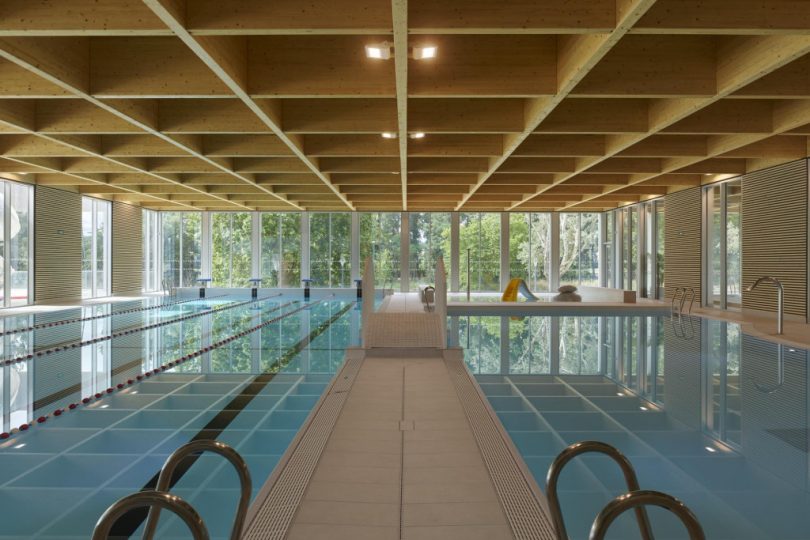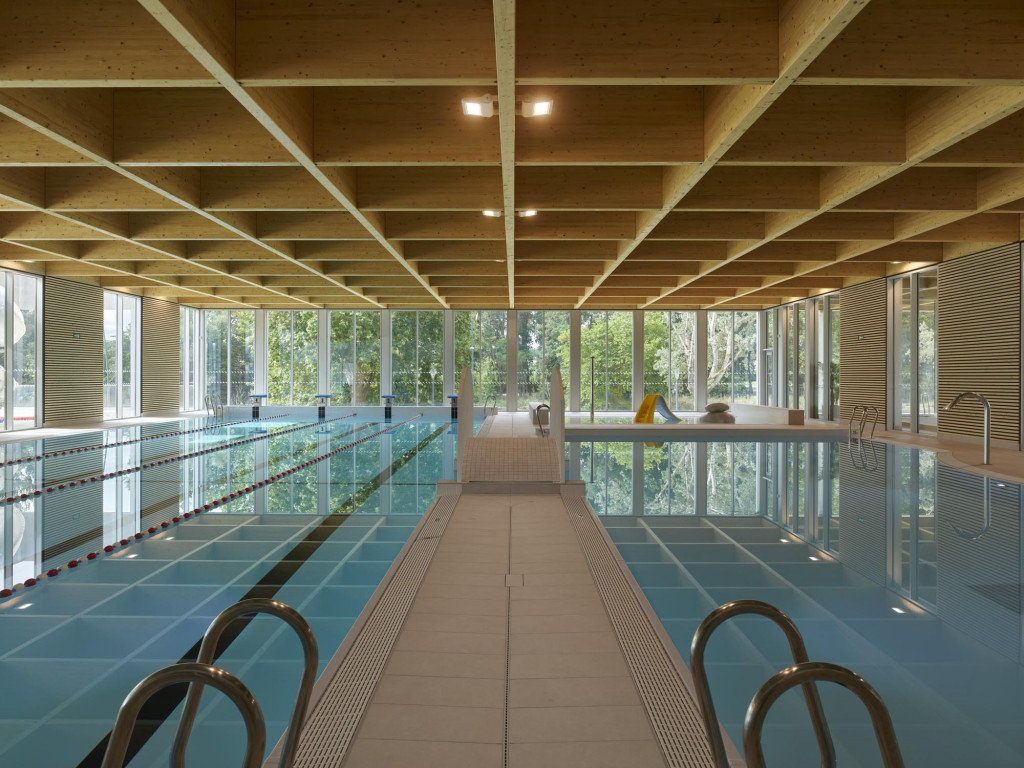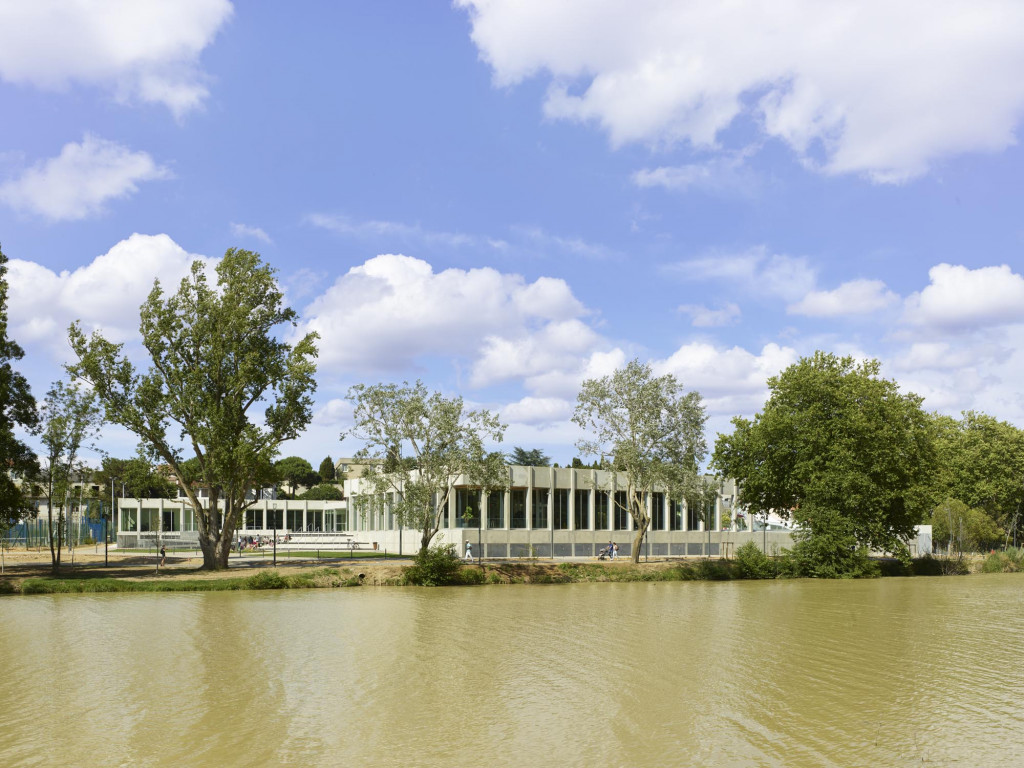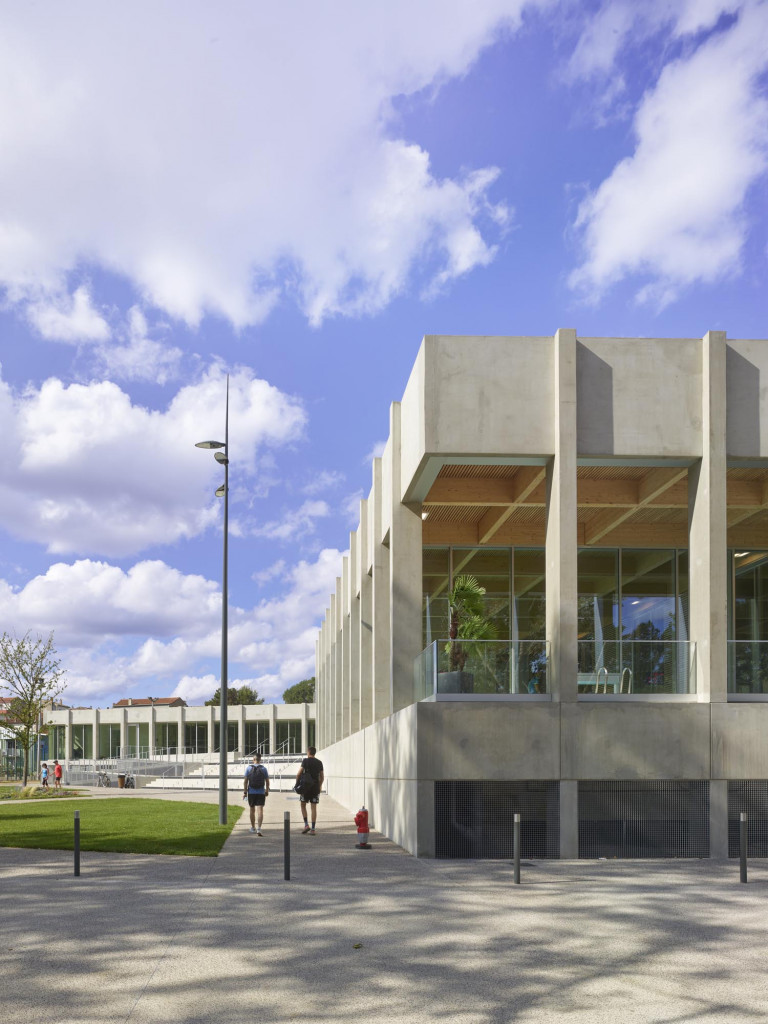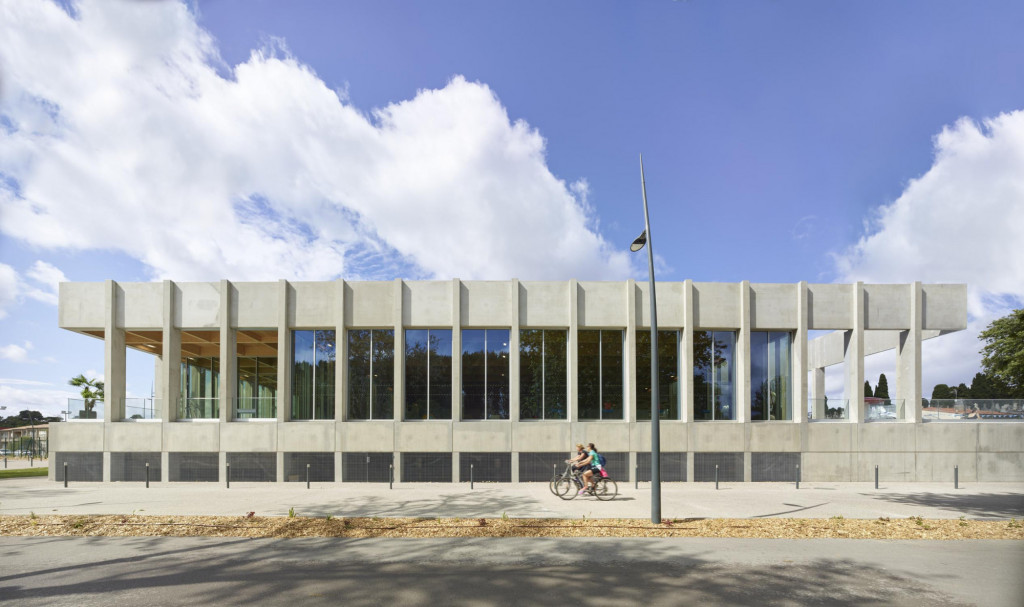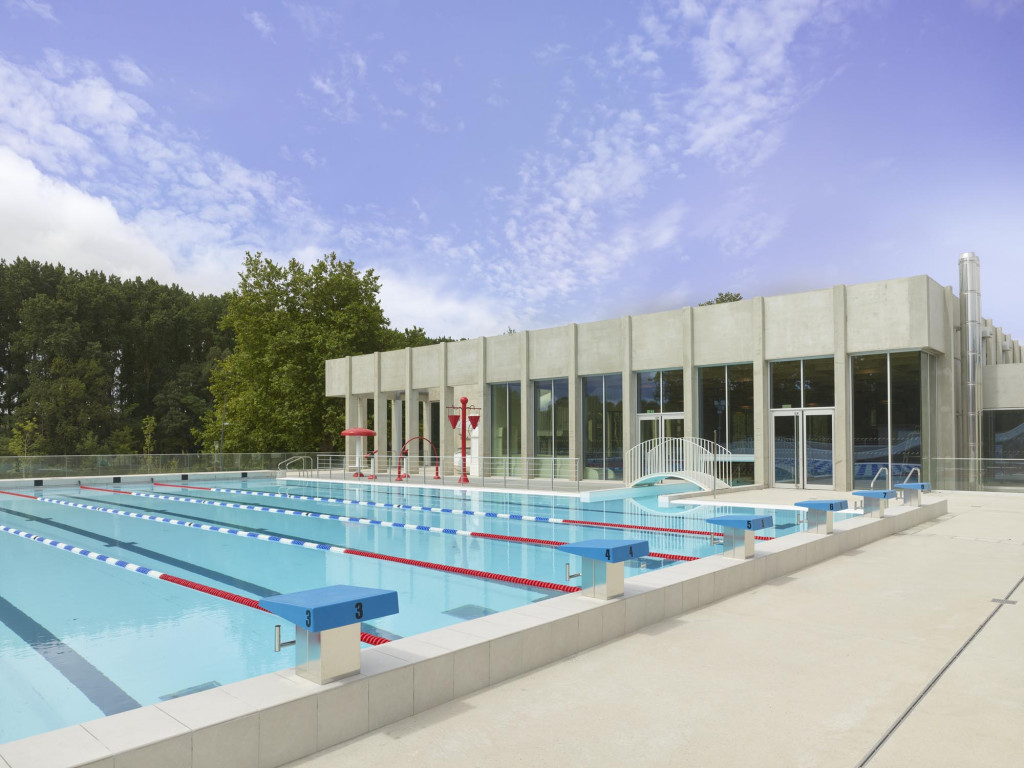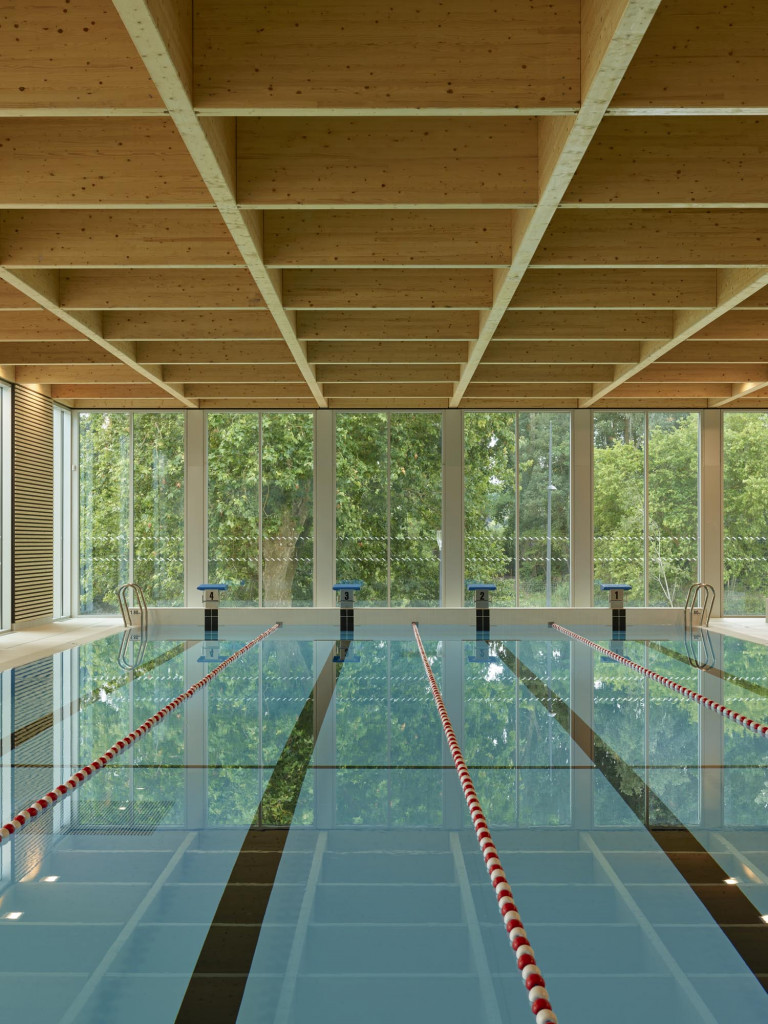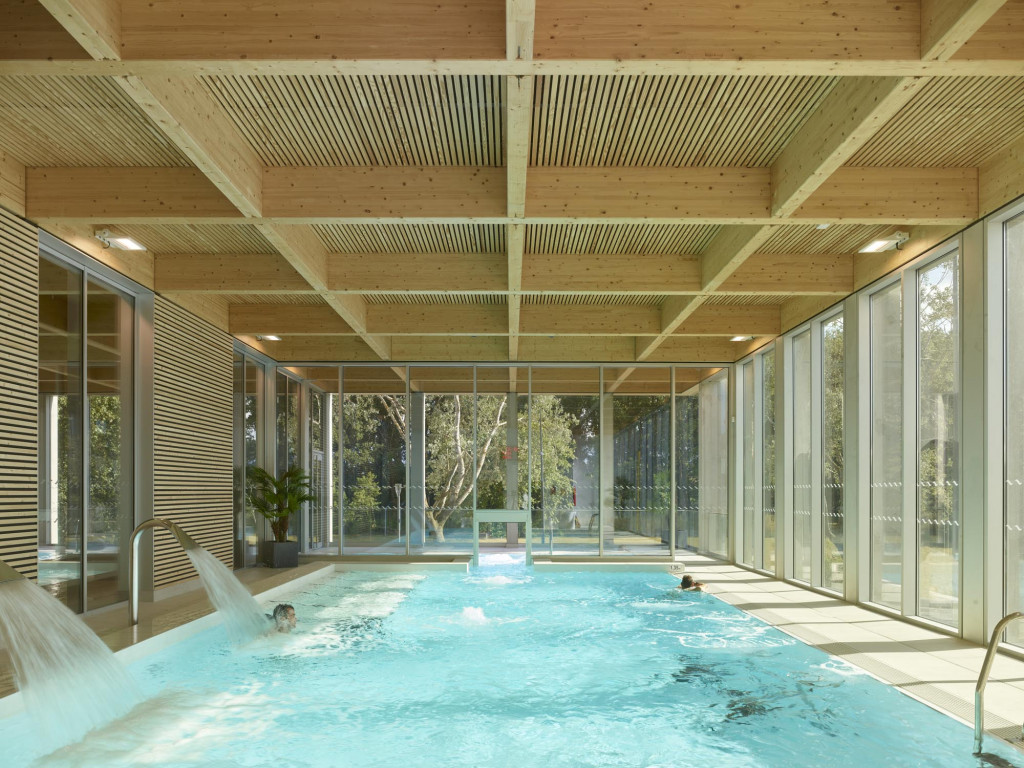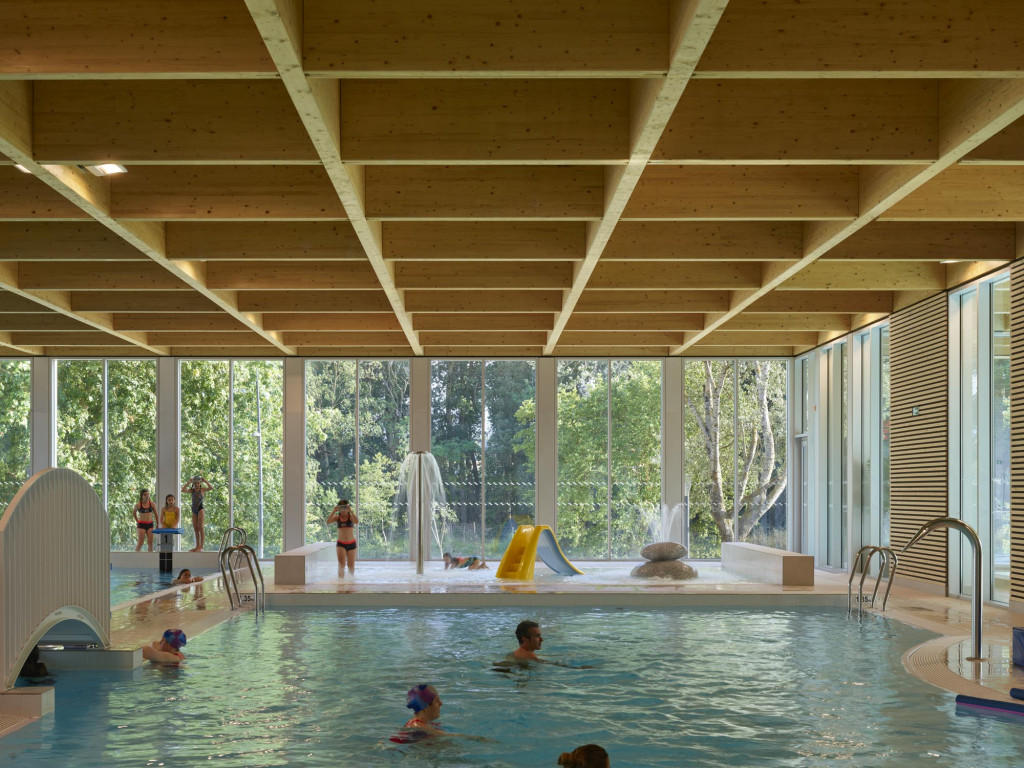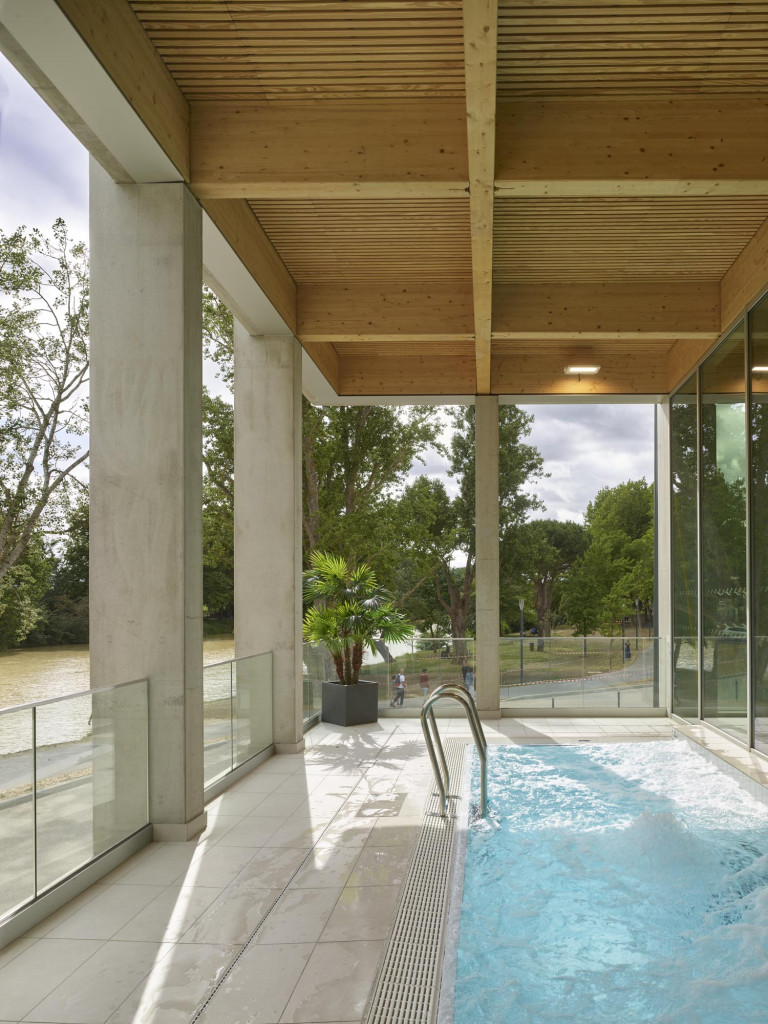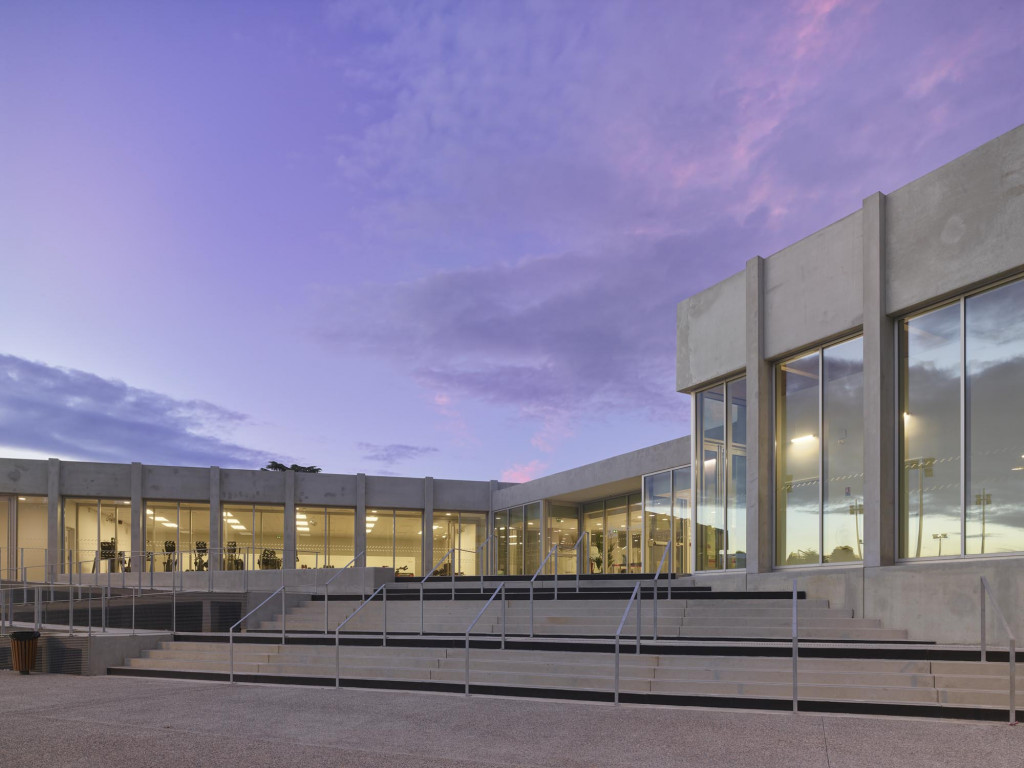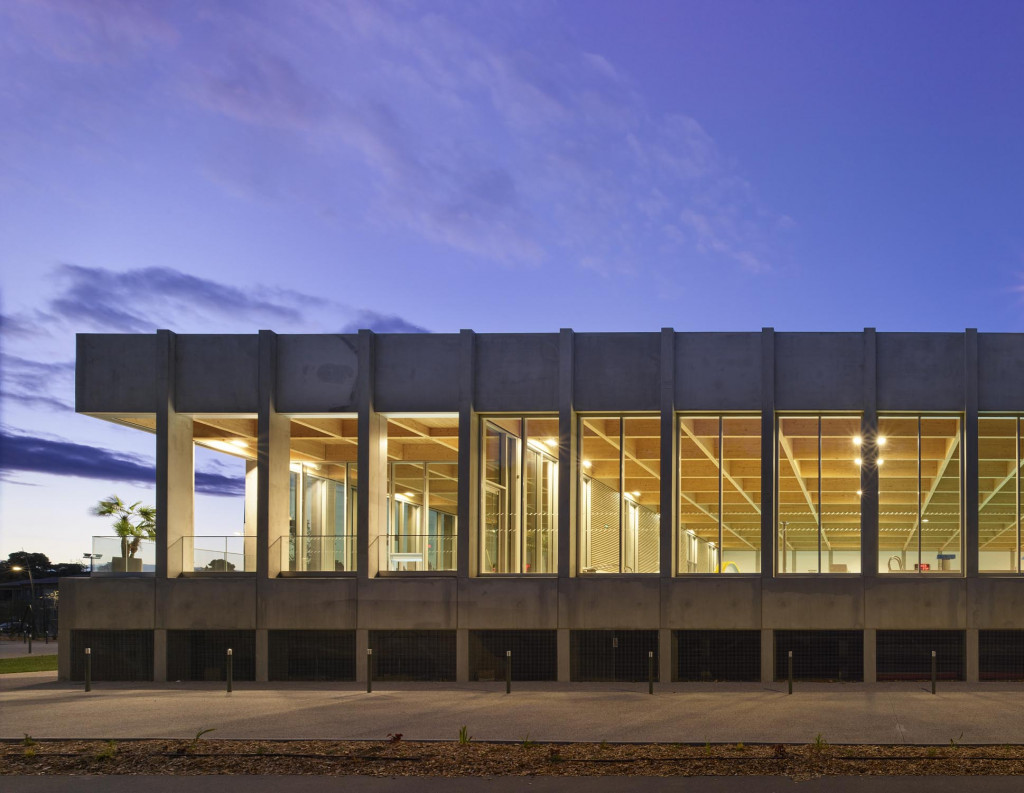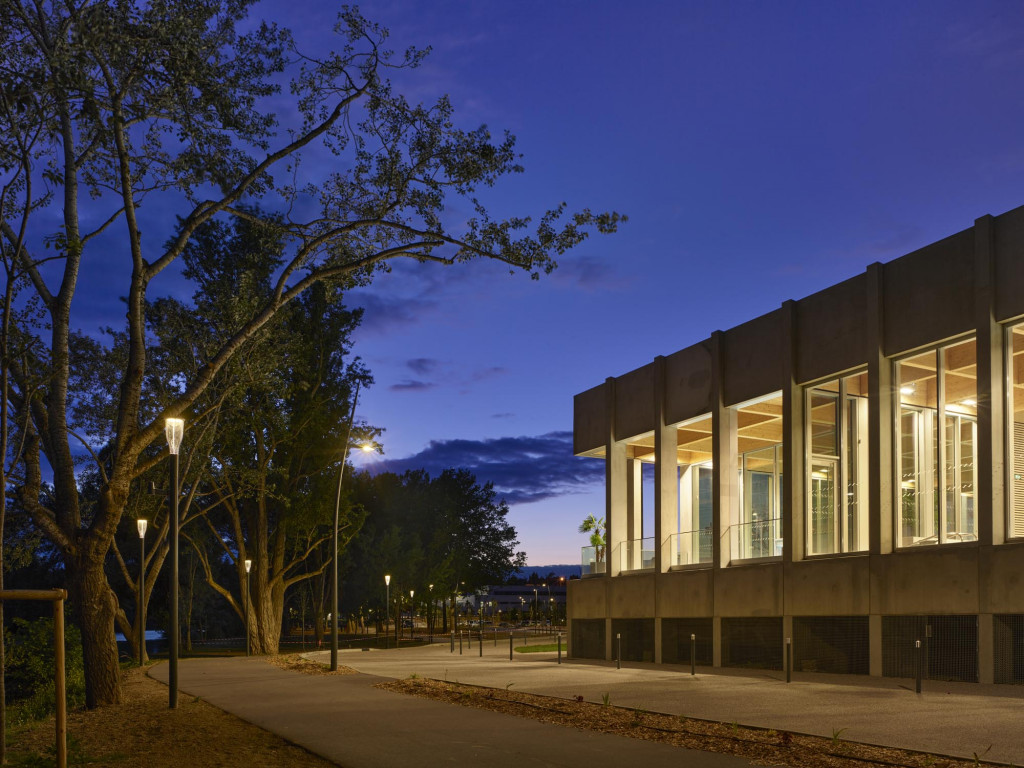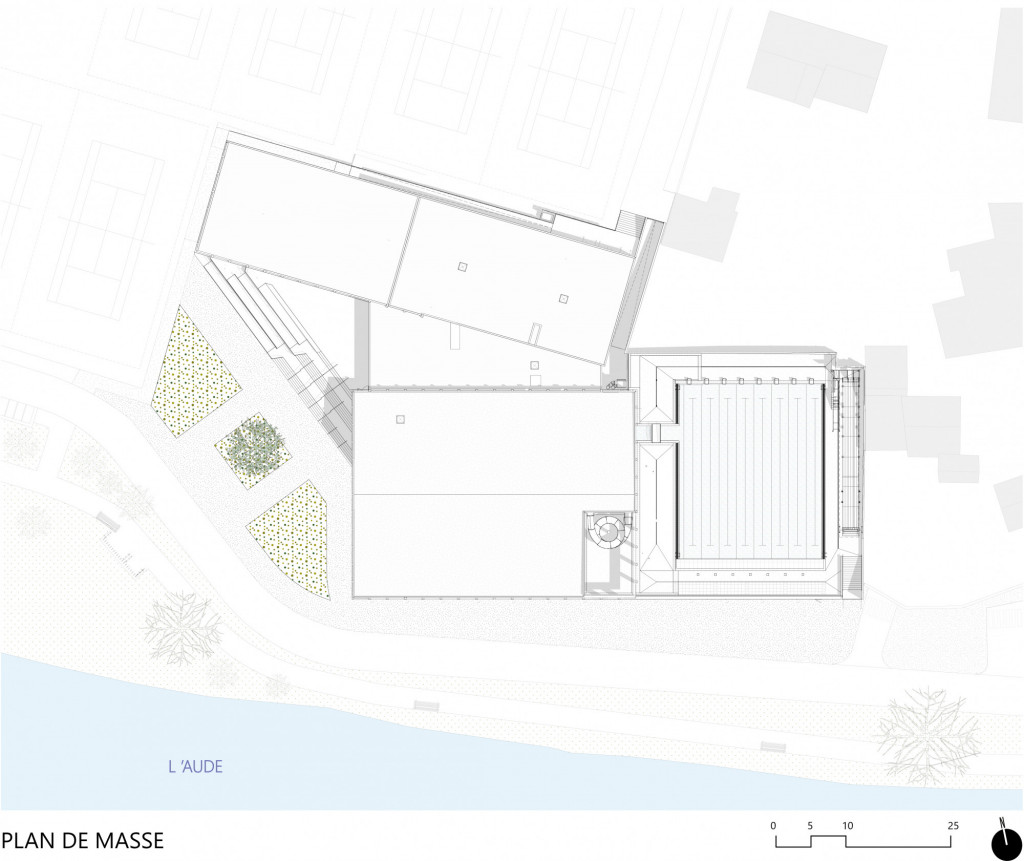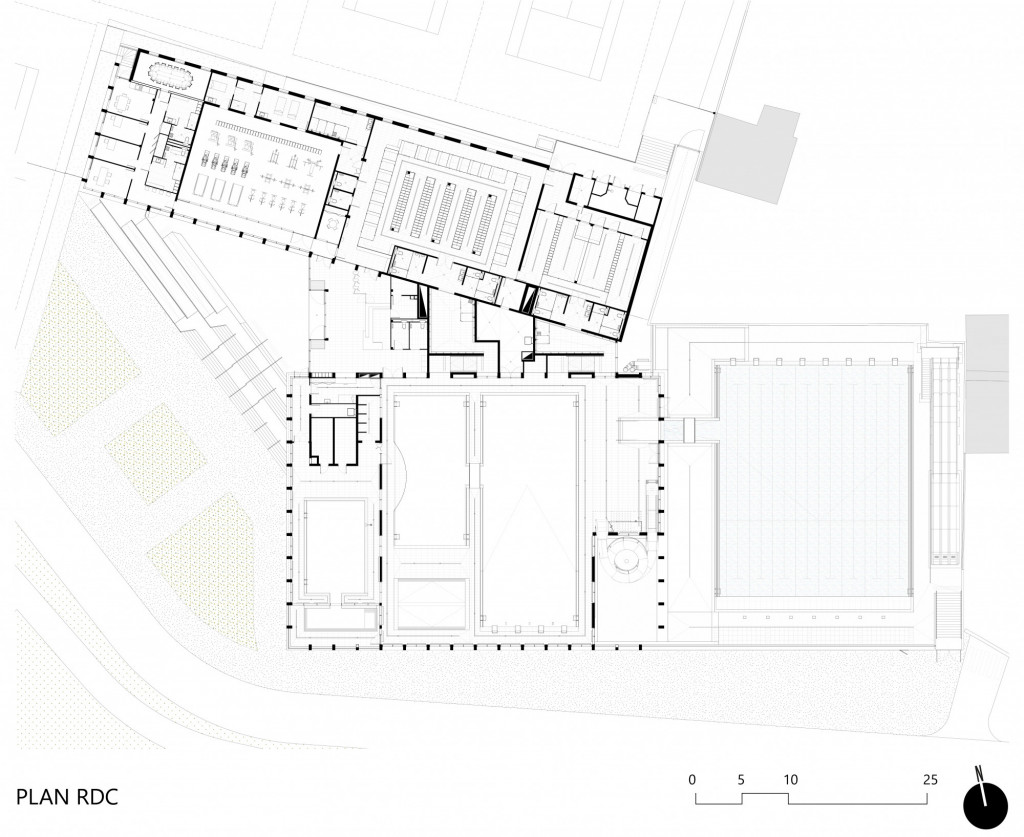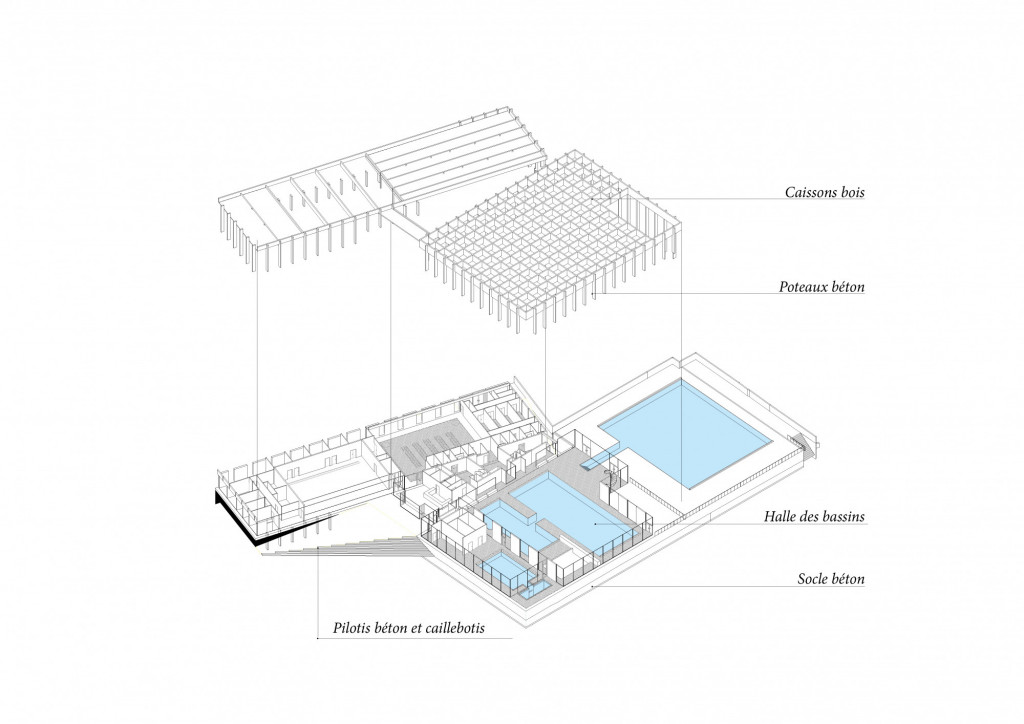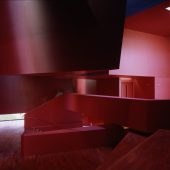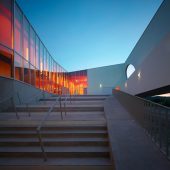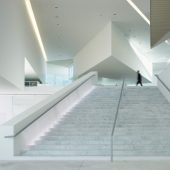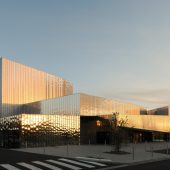Païcherou Aquatic Centre’s site is exceptional for its privileged location on the Aude river and for its relationship with the City of Carcassonne and la Bastide Saint-Louis.
The architectural approach involved maintaining a continuity with the existing site and respecting its landscape. The Aquatic Centre aims to accentuate the territory unique to the town of Carcassonne, situated between the Black Mountain to the North, the Corbières to the East, the Lauragais plain to the West and the Aude valley to the South. The site is on a meander of the Aude river, below the town and facing the agricultural land that stretches to the foot the City of Carcassonne. It is a setting with significant landscape and historical presence. The ancient settlements between the Aude and la Bastide Saint-Louis, built in the 13th century, gradually densified to take on a residential character during the 20th century.
Païcherou Aquatic Centre exists between architecture, landscape and territory. Architecturally, the project highlights the site’s unique points. The depressions and existing stand allow a working of views towards the Aude and the creation of relationships with the surrounding landscape. Concerning the urban and landscape aspects, the project’s boundaries and access routes are organised along the riparian woodland pathways, adjacent to the river. A majority of the site’s existing trees have been preserved in order to punctuate the entrances. Identification with the landscape is affirmed with clear views to the river banks and paths.
The original Païcherou swimming pool building required remodelling for both usage and structural reasons. It was below regulation level for flood risk. The project nevertheless proposed reusing the original building socle, giving a starting point. To minimise the impacts on the ground, the base is raised in response to the flood risk. This favours the view over the landscape and creates a connection with the Aude.
The Païcherou Aquatic Centre is both compact and generous. Its exterior reflects aspects of the spaces within. The pools and Balneo create a transparent hall. The entrance hall is a pivotal point with the annex programs constituting the background. The project weeks to be dynamic, functional, attractive and contemporary. The Aquatic Centre welcomes a varied clientele. It must be legible and accessible to all in a simple and clear way. Particular attention was therefore paid to the positioning of the different parts of the building and to its flow and circuits.
To favour a clear urban approach, the entrance hall is at the site’s centre, between the two part of the building. This arrangement creates several pathways and adapts to the existing connections: pedestrian and cycle paths, from the east towards the west; carparks and bus stops to the west and the carpark to the east. A generous forecourt-ramp constitutes an urban entrance, accessible by all. This forecourt structures a new interpretation of the spaces and a new relationship with the town and the Aude. The entrance hall becomes the project’s focal point. It serves all spaces without creating long passageways. From the entrance, the user can glimpse all the possible activities of the Aquatic Centre.
To the north of the plot, along the length of the entrance forecourt, the Païcherou Aquatic Centre comprises a fitness and cardio space with connected training equipment, massage rooms and changing rooms as well as administrative offices. These facilities are integrated in a body on piles resting on the natural ground, without modification to its grading, and acting as a reference at the rear of the plot.
To the south of the Aquatic Centre, an indoor pool hall contains several key elements of the program. A primary 25m by 15m pool is here, with a 1.3m depth for activities, child access and swimming. A second pool of 15m by 10m provides for aquagym activities. A Balneo space completes these interior facilities. It includes sauna, hammam, spa shower, massage pool and exterior space with solarium and a belvedere pool over the Aude. These spaces are well lit and benefit from an east-west transparency, while maintaining intimacy for the users. The exterior aquatic space holds the Nordic pool of 25m by 21m (usable all year round), a pentagliss and games for children.
The simplicity of the functional connections allows a clear structuring of the facilities while keeping circulation spaces to a minimum. Particular attention has been paid to the wet and dry spaces which are directly identifiable from the hall and connected with a precise functional pathway. A recognisable separation is also made between the spaces dedicated to school use and those to other public users.
The Païcherou Aquatic Centre is constituted by a concrete base on which a hollowed and transparent objet rests, framing the landscape. The glazing works in conjunction with the metal, varying according to the needs of the program, becoming openings or railings on the exterior decks. The concrete masonry is used to create the structure and the project’s constructive grid. Along the facades, columns follow a regular pattern and support 4m tall windows, linking directly with the Aude. On this structure that regulates the façade, a wood construction system is set. This glued laminated wood structure supports the roof, using a grillage frame structure with 2.55m spacing. This system allows spanning more than 30 metres with a beam height of only 160cm, which is in alignment with the project’s concrete peripheral spandrel beams. Intermediate load-bearing points have thus been avoided.
The building’s standing base houses the technical services while meeting the flood risk requirements. This base allows a positioning in which the outdoor pool is accessible from the forecourt in the event of competitions. The volume set above the standing base is open on its four sides, with concrete columns dimensioned at 30cm wide and 50cm deep. The columns are placed at a spacing of 2.55 metres, defining a coherent structural system around the whole hall. These columns support the 180cm high spandrel beam which bears the interior roof structure.
The reception area, changing rooms, fitness and administration areas use a concrete post and beam construction system.
By TAILLANDIER ARCHITECTES ASSOCIES
